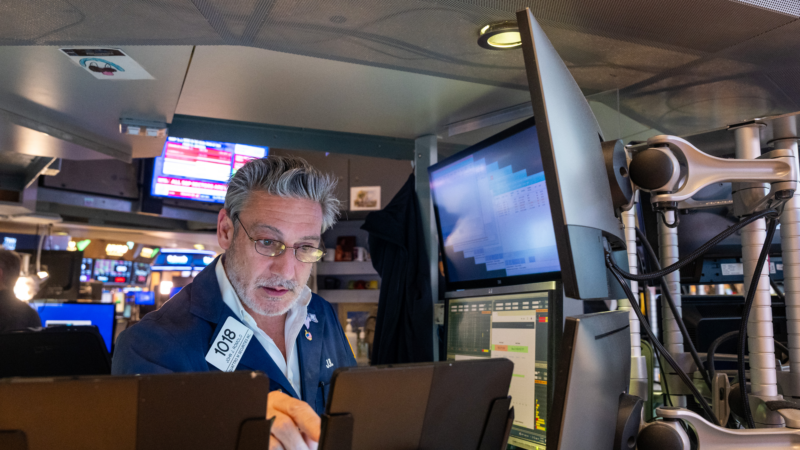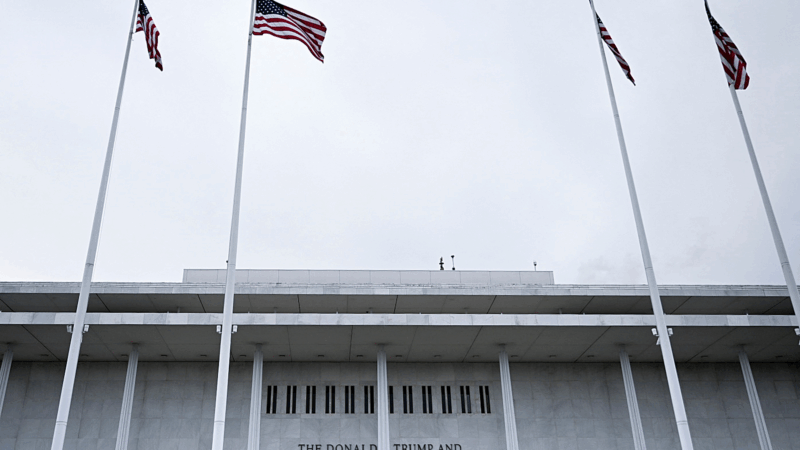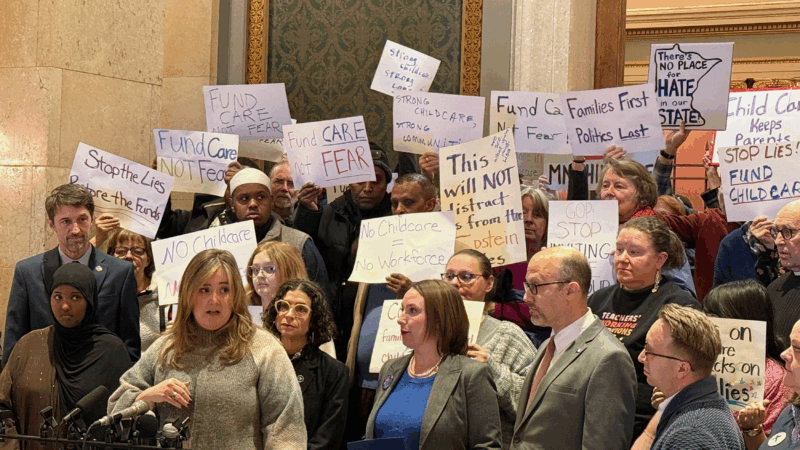Why some are accusing Trump of manipulating stock markets
Wall Street has been whipsawed for more than a week by President Trump’s every word about tariffs. Now he’s facing accusations of using his power to deliberately manipulate the markets.
The scrutiny started with a tale of two social-media posts. On Wednesday, shortly after the U.S. stock market opened, Trump posted on his Truth Social network in all caps: “THIS IS A GREAT TIME TO BUY!!!”
Less than four hours after his post, Trump said on Truth Social that he would pause the harshest of his tariffs on most countries.
Stocks immediately skyrocketed in relief, with the Dow closing up almost 3,000 points — meaning that any investors who had followed Trump’s advice in the morning and bought into the stock market right away would have made quite a bit of money by the end of the day.
Prior to his post, share prices had been plummeting for days, as fears mounted about the economic damage Trump’s new trade policies could cause. Powerful investors and billionaire business leaders had increasingly gone public airing their worries about the new tariffs, and the resulting financial panic.
By Wednesday afternoon, Trump seemed to hear them when he hit pause.
Now some Democratic lawmakers and government ethics experts are calling for investigations into whether Trump was attempting to deliberately manipulate the markets, or to enable others to trade on insider information.
Senator Adam Schiff, Democrat from California and Ruben Gallego, Democrat from Arizona, sent a letter to the White House on Wednesday, requesting “an urgent inquiry into whether President Trump, his family, or other members of the administration engaged in insider trading or other illegal financial transactions, informed by advanced knowledge” of his tariff policy changes.
Senator Elizabeth Warren, Democrat from Massachusetts, also called for an investigation, asking on the floor of Congress if this was “corruption in plain sight.”
White House spokesperson Kush Desai accused Democrats of “playing partisan games,” and tells NPR that Trump’s early-morning post was merely meant to calm investors’ fears.
“”It is the responsibility of the President of the United States to reassure the markets and Americans about their economic security,” he wrote in an emailed statement.
George W. Bush’s former chief ethics lawyer says such statements would have led to firing
But the criticisms of Trump’s two Truth Social posts aren’t just limited to his partisan opponents.
“We can’t have senior public officials — including the president – talking about stock prices and where to buy or to sell at the same time as they are making and announcing decisions that have a dramatic impact on stock prices,” says Richard Painter, a law professor at the University of Minnesota, who previously served as the chief ethics lawyer for President George W. Bush.
If anyone in the Bush administration had made similar public statements urging people to buy or sell stocks, Painter added, “that person probably would [have been] fired.”
Painter did not accuse President Trump of market manipulation: “We don’t have clear evidence of that here,” he tells NPR.
But he pointed out that the president already has a track record of pushing the boundaries, at the very least.
“Financial conflicts of interests for President Trump have been a concern since he was first elected in 2016,” Painter says, adding that the problems today are even greater.
Trump’s embrace of the crypto industry, for example, has drawn ongoing scrutiny: The president, who has a growing personal portfolio of cryptocurrency-related businesses, has appointed pro-crypto Cabinet officials and promised the industry much friendlier regulation.
It’s up to the SEC to investigate accusations of insider trading
Despite the wide-ranging calls for investigations into Trump’s social-media posts on Wednesday, Painter and others aren’t expecting to see much happen.
The Republican lawmakers who control both the House and Senate have shown little interest in picking fights with Trump. Nor do ethics experts expect much movement from the U.S. Securities and Exchange Commission, which investigates accusations of insider trading.
On Wednesday, the Senate voted to confirm Trump nominee Paul Atkins to lead the SEC. And Trump in February signed an executive order claiming more power over independent regulatory agencies, including the SEC.
An SEC spokesperson declined to comment on the matter.
Washington National Opera leaves Kennedy Center, joining slew of artist exits
The WNO is just the latest to say they will no longer perform at the Kennedy Center since Trump took over last year.
Ukrainian drones set fire to Russian oil depot after Moscow launches new hypersonic missile
The strike comes a day after Russia bombarded Ukraine with hundreds of drones and dozens of missiles, including a powerful new hypersonic missile that hit western Ukraine.
Opinion: Remembering Renee Good
Renee Good won a national prize six years ago for her poem "On Learning to Dissect Fetal Pigs," which muses on science and faith. Good was shot to death by an ICE agent this week in Minneapolis.
PHOTOS: Laundry is a chore but there’s a beauty and serenity in the way it hangs out
A new photo series from Filipino photographer Macy Castañeda Lee offers a visually striking view of the mundane task of doing laundry and the role it plays in a rural economy.
2026 looks ominous for media, from Hollywood to journalism
Critic at large Eric Deggans says that in 2026, audiences have more power than they realize to determine the future of news and entertainment.
Influencer, White House welfare fraud claims are distorted, but the system has risks
Federal officials are targeting Democratic-led states over alleged safety-net fraud. Critics worry a drumbeat of unfounded accusations could undermine public trust.







